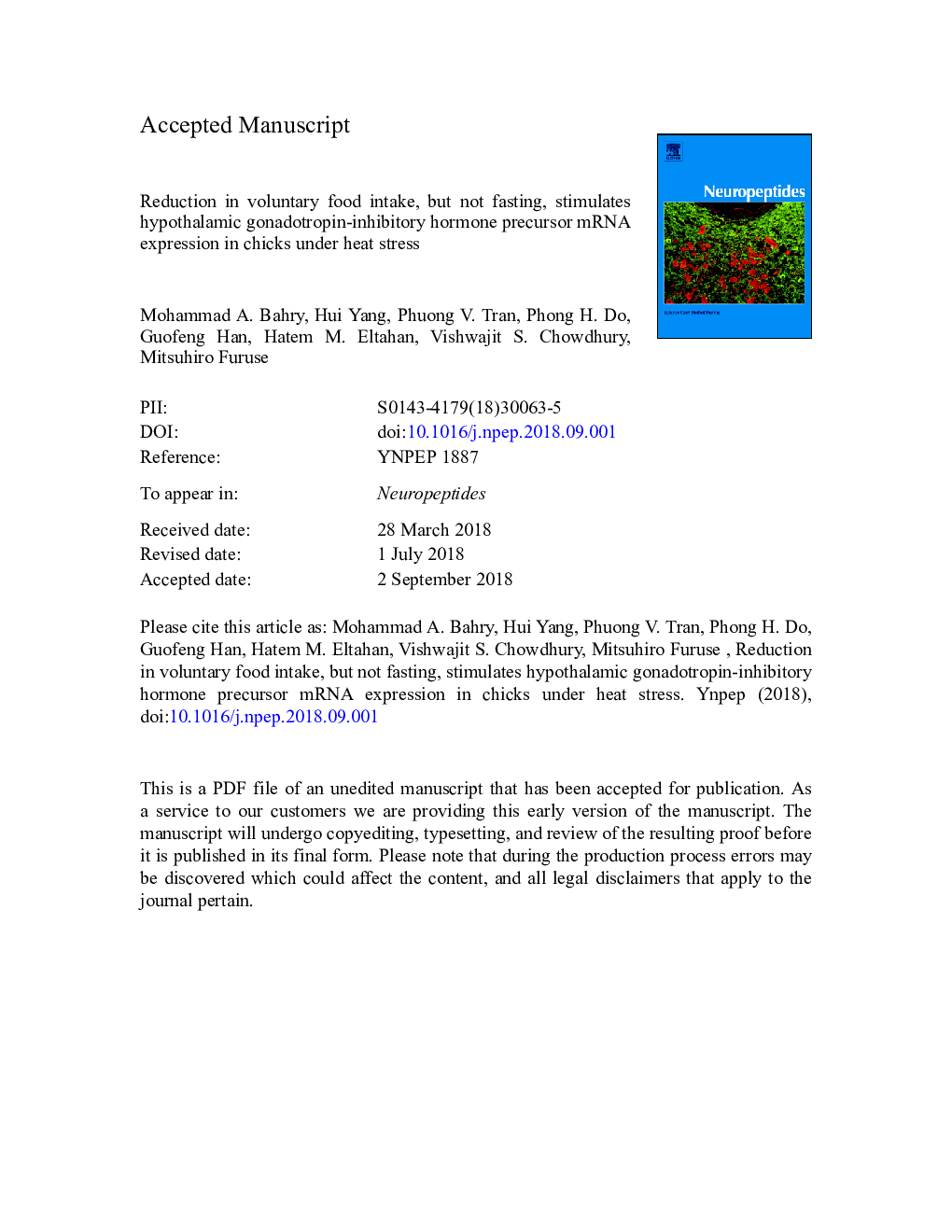| Article ID | Journal | Published Year | Pages | File Type |
|---|---|---|---|---|
| 10212323 | Neuropeptides | 2018 | 27 Pages |
Abstract
Heat stress is an issue of rising concern across the globe. Recently, we found that mRNA expression of gonadotropin-inhibitory hormone (GnIH), an orexigenic neuropeptide, was increased in the heat-exposed chick brain when food intake was reduced. The aim of the current study was to examine mRNA expression of GnIH and of the glucocorticoid receptors (GRs) in the hypothalamus as well as the plasma corticosterone (CORT) and metabolites in 14-d-old chicks exposed to a high ambient temperature (HT; 40â¯Â±â¯1â¯Â°C for 1 or 5â¯h) or a control thermoneutral temperature (CT; 30â¯Â±â¯1â¯Â°C), either with free access to food or fasted. Heat stress caused a voluntary reduction of food intake and reduced plasma triacylglycerol concentration, but increased rectal temperature and plasma CORT and glucose concentrations (Pâ¯<â¯0.05). Heat stress also increased (Pâ¯<â¯0.05) the expression of diencephalic GnIH mRNA in chicks when they reduced food intake voluntarily, but did not do so under fasting conditions. Although the expression of GR mRNA was not altered as a result of heat stress, its expression was decreased (Pâ¯<â¯0.05) in fasted chicks at 5â¯h in comparison with fed chicks. In addition, the rectal temperature of fasted chicks was lower than that of fed chicks under both CT and HT. In conclusion, voluntary reduction of food intake caused an increase in brain GnIH mRNA expression, plasma CORT, and body temperature in chicks under heat stress. Interestingly, brain GnIH mRNA expression was not induced by heat stress in fasted chicks and was not accompanied by a decrease in rectal temperature. These results suggest that the increased expression of brain GnIH mRNA in chicks under heat stress could be a consequence of a mechanism mediated by the voluntary reduction of food intake, but that it is not a consequence of fasting.
Related Topics
Life Sciences
Biochemistry, Genetics and Molecular Biology
Endocrinology
Authors
Mohammad A. Bahry, Hui Yang, Phuong V. Tran, Phong H. Do, Guofeng Han, Hatem M. Eltahan, Vishwajit S. Chowdhury, Mitsuhiro Furuse,
